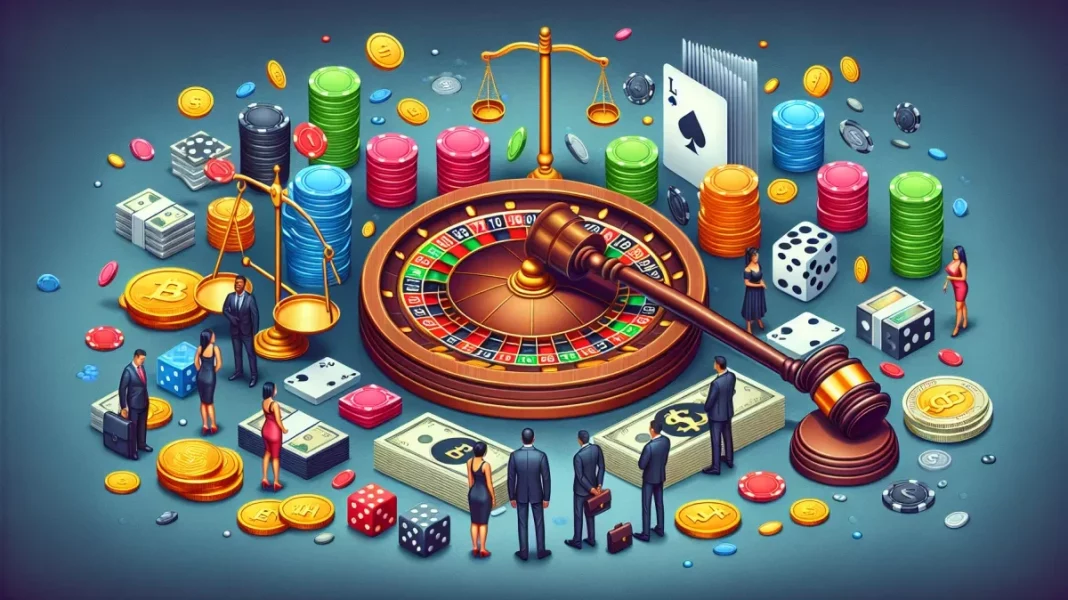In the dynamic world of cryptocurrency and blockchain technology, the advent of Initial Coin Offerings (ICOs) and Token Sales have stirred the gambling industry, helping to reshape and recalibrate the landscape. To gain a comprehensive understanding of the implications of ICOs and Token Sales on the gambling market, it is crucial to understand the nuances of these processes and also delve into the legal discourse associated with them.
What are ICOs and Token Sales?
ICOs, or Initial Coin Offerings, are essentially fund-raising mechanisms, primarily used by startup companies in the realm of blockchain and cryptocurrency. Through an ICO, companies can sell tokens to investors in exchange for cryptocurrencies (usually Bitcoin or Ether). These tokens often serve as the native currency for the company’s service or product. Token Sales are a subset of ICOs, also serving as a fund-raising process where tokens are sold for cryptocurrencies. The key difference between ICOs and Token Sales lies in usage; while tokens sold during an ICO are typically for use within a specific blockchain platform, those sold in Token Sales can often be used throughout various platforms.
ICOs and Token Sales in the Gambling Industry
Over the past few years, the application of blockchain technology and cryptocurrencies in the gambling industry has grown exponentially. Transparency, security, and anonymity are among the top benefits cryptocurrency brings to online gambling, leading to ICOs and Token Sales becoming increasingly popular mechanisms to raise funds for crypto-based gambling platforms.
ICOs allow betting platforms to raise money without the constraints of regulatory paperwork and other formalities associated with traditional fund-raising mechanisms, allowing for a quicker launch. Moreover, token sales give players the opportunity to buy tokens for use on specific gambling platforms at a discounted rate.
Legal Insights
The legal discourse around ICOs and Token Sales in the gambling industry varies significantly from country to country, subjected to a host of national and international regulations.
In the United States, one of the key regulatory bodies scrutinizing ICOs and Token Sales is the Securities and Exchange Commission (SEC). According to the SEC, tokens sold in ICOs could be classed as securities, thereby falling under their jurisdiction. This implies that ICOs require registration with the SEC, and failure to do so could result in penalties. It is also worth noting that operating an online gambling platform is a felony under the Federal Wire Act in the U.S., which restricts the potential scope of ICOs in the gambling industry.
In contrast, the European Union’s approach towards ICOs is more liberal. Some EU countries, such as Malta and Gibraltar, have crafted ‘crypto-friendly’ regulations to attract blockchain businesses – which include crypto-based gambling platforms. However, they still maintain strong anti-money laundering (AML) and Know Your Customer (KYC) guidelines, protecting against potential misuse of ICOs in the sector.
In Asia, the regulatory stance tends to be more restrictive. For instance, China has outrightly banned ICOs, while in Japan, gambling is largely illegal, outlining the restrictions for ICOs and Token Sales in these markets.
The Road Ahead
As with many aspects of cryptocurrency and blockchain, the debate surrounding the legalities of ICOs and Token Sales in the online gambling industry is multifaceted and evolving. Adaptations in legislation, technological advancement, and shifts in gambling culture will undoubtedly influence the industry’s future landscape.
In order to navigate this complex and changing terrain, it’s highly valuable for gambling platforms contemplating cryptocurrency integration, ICOs, or token sales, to stay updated with legal developments in their jurisdictions. This includes consultation with legal experts dedicated to blockchain and cryptocurrency.
With the proliferating trend of ICOs and Token Sales in the gambling industry, a collaborative synergy between regulators, blockchain startups, and legal counsel can ensure the industry evolves responsibly and sustainably.
Sources:
1. U.S. Securities and Exchange Commission. (2020, December 10). Statement on Cryptocurrencies and Initial Coin Offerings. https://www.sec.gov/news/public-statement/statement-clayton-2017-12-11
2. Pitta, Julie. (2021, March 2). Initial Coin Offerings: Financing growth with cryptocurrency token sales. NBER. https://www.nber.org/digest/mar19/w24465
3. Government of Malta. (2019, October 1). Malta: the Blockchain Island. https://www.maltabusinessreview.net/the-blockchain-island-a-comprehensive-guide-on-blockchain-dlt-regulations-in-malta/
4. Library of Congress. (2018, September 6). Regulation of Cryptocurrency: Japan. https://www.loc.gov/law/help/cryptocurrency/japan.php
5. Reuters Staff. (2017, September 4). China hits booming cryptocurrency market with coin fundraising ban. Reuters. https://www.reuters.com/article/us-china-bitcoin/china-hits-booming-cryptocurrency-market-with-coin-fundraising-ban-idUSKCN1BF1CT
Disclaimer: The information in this article is intended for informational purposes only. It is not offered as and does not constitute legal advice. Always consult a professional before making any decisions regarding ICOs, Token Sales, and operations in the gambling industry.



